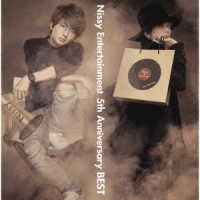Description
In conducting political science research today, one's methodology is of paramount concern. Yet, despite the obvious chasm between theory and practice that all scholars experience in the field, there are no specific guidebooks on meeting the methodological and ethical challenges that fieldwork presents. Political Science Research in the Middle East and North Africa helps fill this vacuum, focusing specifically on doing research in the one of the most important regions in contemporary world politics. Janine A. Clark and Francesco Cavatorta have gathered together a large and diverse group of researchers who study the region and focus on methodological "lessons learned" from their first hand experiences of employing a variety of research methods while conducting fieldwork. The contributors also look at the challenges of conducting field research in a variety of contexts, such as in areas of violence, and using research methods such as interviewing and ethnography. This volume will therefore be an invaluable companion book to more standard methods books and a useful tool, not just for Middle East scholars, but for all researchers conducting research in complex settings.
Table of Contents
AcknowledgementsList of contributors1. Introduction: The Methodological and Ethical Challenges of Conducting Research in the Middle East and North AfricaJanine A. Clark and Francesco CavatortaPart 1: Context2. Encountering the Mukhabarat StateJillian Schwedler and Janine A. Clark3. What Is So Special about Field Research in Iran? Doing Fieldwork in Religiously Charged Authoritarian SettingsPaola Rivetti and Shirin Saeidi4. Authoritarianism, Gender, and Sociopolitics in Saudi ArabiaGwenn Okruhlik5. Researching in and on the Palestinian Occupied TerritoriesBenoit Challand6. Seeing Beyond the Spectacle: Research on and Adjacent to ViolenceSarah E. Parkinson7. Doing Research during Times of Revolution and Counter-revolutionAtef Said8. Researching the Countryside: Farmers, Farming, and Social Transformation in a Time of Economic LiberalizationRay BushPart 2: Methods9. Interviewing: Lessons LearnedJanine A. Clark10. Interviewing Salafis: Negotiating Access and EthicsMassimo Ramaioli11. Interviewing Salafis: Overcoming Mistrust in Middle Eastern and European ContextsZoltan Pall and Mohamed Ali Adraoui 12. Interviewing and GenderEmanuela Dalmasso13. Process tracing and the Political Economy of Development in the Middle EastDavid Waldner14. Ethnography Is an Option: Learning to Learn in YemenStacey Philbrick Yadav15. Coding in Qualitative ResearchMohammed Yaghi16. Quantitative Research in MENA Political ScienceMiquel Pellicer and Eva Wegner17. Of Promise and Pitfalls: Population-Based Experimental Research in the Middle EastSteven Brooke18. Online Media as Research Topic and Research Tool: Fact, Fiction and FacebookElizabeth Monier19. Researching TwitterGeoffrey MartinPart 3: Ethics20. Blurred Lines of Inclusion and Exclusion: Research Ethics for SympathizersIrene Weipert-Fenner21. Playing with Positionality? Reflections on"Outsider" / "Insider" Status in the Context of Fieldwork in Lebanon's Deeply Divided PolityPaul Kingston22. Intersectionality Theory and Working with "Both Sides"Lihi Ben Shitrit23. The (Ambiguous) Fieldwork Experiences of a German Moroccan in JordanMalika BouzianeNotesBibliographyIndex
-

- 電子書籍
- 戦場の魔法使い: 0 ~新時代異世界…
-

- DVD
- ガール!ガール!ガール!






